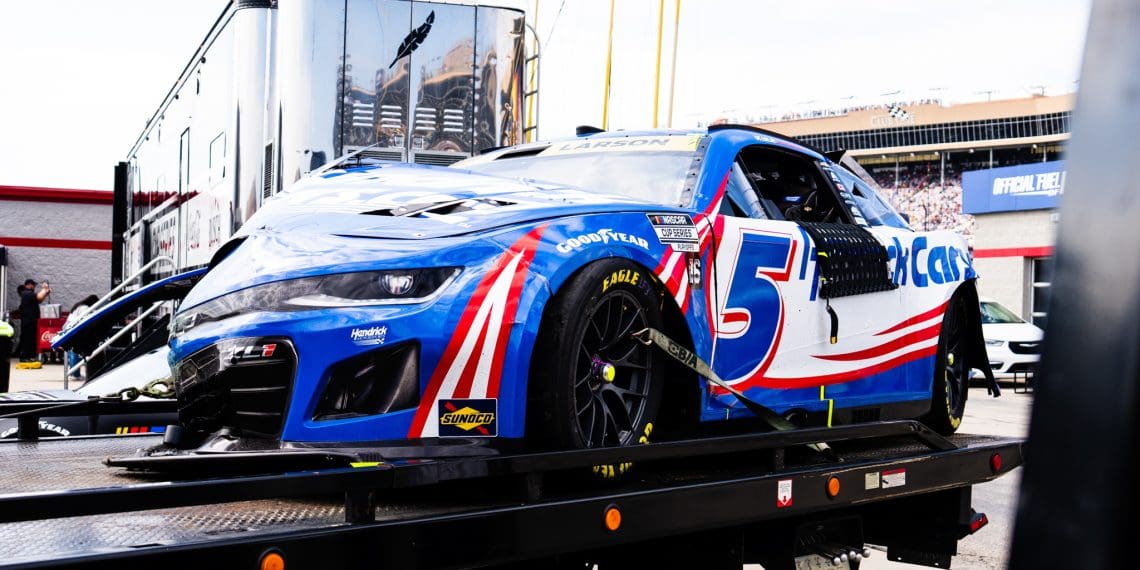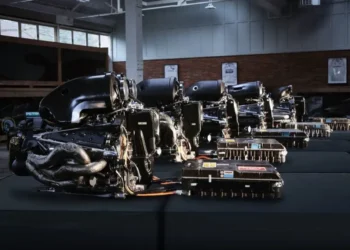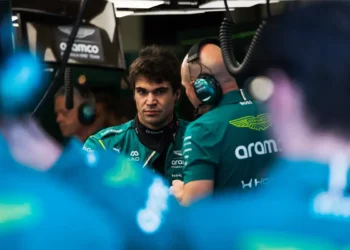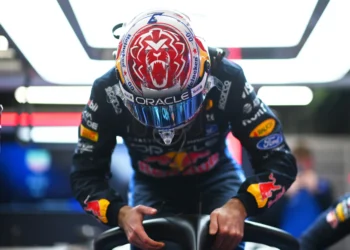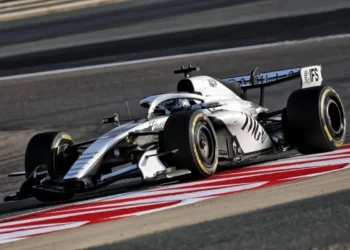NASCAR’s rigid vehicle recovery rule is under fire yet again after Stewart-Haas Racing’s Josh Berry found himself ejected from Sunday’s Kansas Speedway race, raising questions about the sport’s approach to crash recovery ahead of crucial championship-deciding races. The rule, which mandates that if a car cannot drive itself back to pit road after a crash, it is automatically out of the race, has drawn mounting criticism for its lack of flexibility, with Berry becoming the latest driver to voice frustration.
Berry’s incident occurred on lap one, as he was involved in a multi-car crash and spun with four flat tires. Though his team believed a simple tow and new tires would get him back on track, NASCAR’s rule was clear: if the car can’t drive back, it’s done for the day. Berry, perplexed, was told to exit his vehicle and watched as his Ford was towed into the campground, leaving him “chilling with the fans” while his crew chief Rodney Childers tried in vain to communicate with race officials.
NASCAR Cup Series managing director Brad Moran defended the decision, citing the Damaged Vehicle Policy (DVP) and the incident data recorder (IDR) showing a significant impact, which triggered automatic safety protocols. “Once you’re involved in a DVP accident, you have to drive it back or you’re out,” Moran said. But the explanation did little to soothe Childers, who took to social media to vent his frustration.
The rule, which has been in place since 2017, is intended to prioritize safety, but incidents like this one—and a similar situation involving Ryan Blaney at Watkins Glen—highlight its inflexibility. NASCAR does have a provision for cars with flat tires to be towed to pit road, but that didn’t apply to Berry, whose crash triggered the DVP.
Berry’s experience has sparked concern among drivers and teams, particularly with the championship race at Phoenix Raceway looming. If a similar incident were to affect a title contender, it could lead to chaos in the sport’s most high-stakes race of the year. Moran admitted that such a scenario would be a “real bad situation” but confirmed that the rule won’t be changing before the end of the season.
While Moran acknowledged the growing backlash, stating that the rule will be reviewed in the offseason, the timing couldn’t be worse for NASCAR. With fans and teams alike scrutinizing every decision as the season draws to a close, the sport’s governing body will need to tread carefully to avoid further controversy. As the focus shifts to the championship-deciding races, NASCAR’s inflexible crash policy could have serious consequences for the title race—and for the sport itself.
Photo from Nascar (X) account

